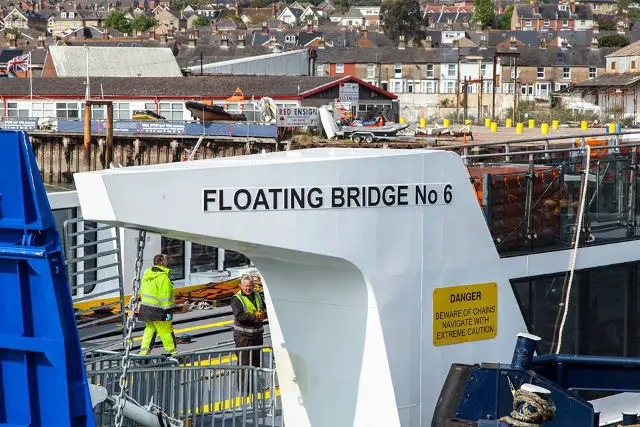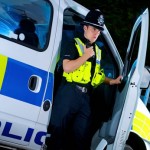The Mayor of East Cowes Town Council has written to the CEO of Solent LEP requesting her intervention over the Cowes floating bridge saga.
OnTheWight has had sight of a letter sent by Peter Lloyd on behalf of the stakeholders of Cowes, East Cowes and Newport, to the Chief Executive of the Solent Local Enterprise Partnership – the funder of the new floating bridge.
The highly-detailed, 23 page letter, which includes statistical data and references, sets out the problems with the £3.7m+ floating bridge (FB6) as the stakeholders see them and says they have – despite numerous attempts – struggled to get the Isle of Wight Council (IWC) to engage in a “constructive and meaningful way”.
Decision-making questioned
The letter questions the decisions made by the council and the logic they used to make those decisions.
It claims that the number of people that would stop using the Floating Bridge on the introduction or increase of charges (the attrition) – and the following reduction in money that would be taken – had been ignored in all budgeting calculations when decisions were being made on fares.
This was vital they claim, as this attrition is often up to a third of the people using the service.
Stakeholders: “Cannot accept a sub-standard floating bridge”
In the letter Mr Lloyd explains the extent of the design and technical problems with the bridge. He adds,
“When the town councils and stakeholders have asked [IWC] how this floating bridge will meet its requirements, we are being told that it might not meet all of them.
“Given that the stakeholders have not been consulted properly from the start, we need help communicating with the Council, as we simply cannot accept a sub-standard floating bridge.”
Mr Lloyd goes on to ask the Solent LEP to write to the Isle of Wight Council with,
“The request that they demonstrate how they have achieved the criteria demanded in their Solent Gateway paper to help the economy, and how the floating bridge will meet all requirements necessary for frequent, safe, reliable, constant, available, and efficient transport.”
Budget decisions, not economic impact
The stakeholders believe the IWC is making decisions about the floating bridge based on increasing their income, rather than the benefit to the economy of the local communities – which was a key component of the SLEP awarding the £3.7m grant.
The 23 page letter also cites the economic problems that local businesses have experienced over the last year, as well as yesterday’s news about the closure of a 22 year old business, Value 4 U, which up until the problems with the floating bridge last year, had never run at a loss.
Highly-profitable service
As has been highlighted through OnTheWight several times before, the former floating bridge service ran at a profit.
Not only was it covering its own running costs but contributing a profit of somewhere between £140,000 – £250,000 per annum to the IWC’s budget – even when not charging for pedestrians.
The stakeholders argue that by charging for pedestrians and increasing vehicle fares on the floating bridge, the IWC are simply increasing their profit, not paying for the operation of the bridge.
How to fix the problem
Mr Lloyd expresses his opinion that the service between the two towns cannot be fixed without a complete, expensive retrofitting of FB6 or by simply providing a new floating bridge, as well as making some fundamental changes to the toll charging.
He says,
“We – the town councils and various local stakeholders – have attempted unsuccessfully to explain this in financial, economic, and engineering terms to the Council, using local experts in those fields.”
Requirements for positive economic impact
The stakeholders argue that in order for the floating bridge to achieve positive economic impact, it must have good:
- Frequency (how often the bridge crosses back and forth)
- Reliability (operates without breaking down)
- Safety (operates safely, protecting people, the bridge itself, and river traffic from injury)
- Constancy (operates without interruption or fewer crossings)
- Availability (operates 19 hours per day)
- Efficiency (maximises operation using the least resources e.g. less fuel, less cost, etc.)
- Affordability (at a price point that the maximum number of people will use it with maximum profit)
The Council “appears not to be listening”
They go on to say that,
“The Council appears not to be listening; nor want to understand the cause-effect impact of the physical and financial barriers to the floating bridge, its attrition, and how additional traffic affects economies; and/or doesn’t care about the effect on the local towns or Newport traffic.”
Negative implications
The implications of the above requirements not being met could have a negative impact on not just the local economy but the IWC’s coffers too.
The stakeholders say it could lead to a reduction in the number of businesses that pay business rates (soon to be a vital source of income for the IWC);
They also cite:
Further isolation of East Cowes; a negative impact on house prices on both sides of the river and Newport; the risk losing small businesses which pay into the local economy; increase existing traffic with more traffic as homes are being built; it dissuading residents from buying homes within towns that are blighted with little to offer, and be a disincentive for businesses to locate to the three town centres and outlying areas – including existing potential arrangements around the East Cowes Solent Gateways improvements and other residential and commercial planning.
Bated breath
There is clearly a great deal for the Solent LEP CEO to get her head around and her teeth into.
We’ll let you know whether she agrees to represent the town councils, businesses and residents of Cowes, East Cowes and Newport.
Image: © With kind permission of Allan Marsh





